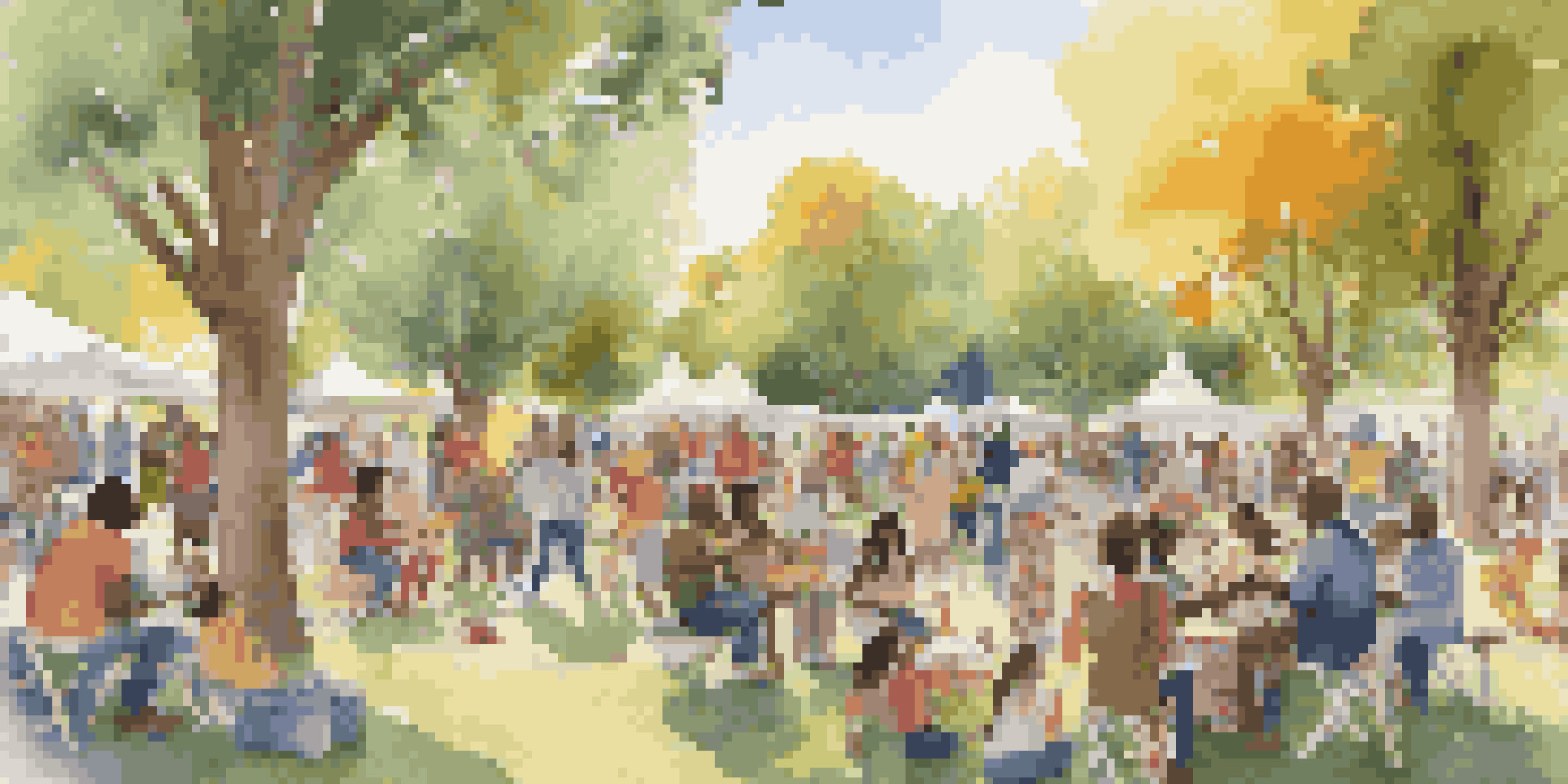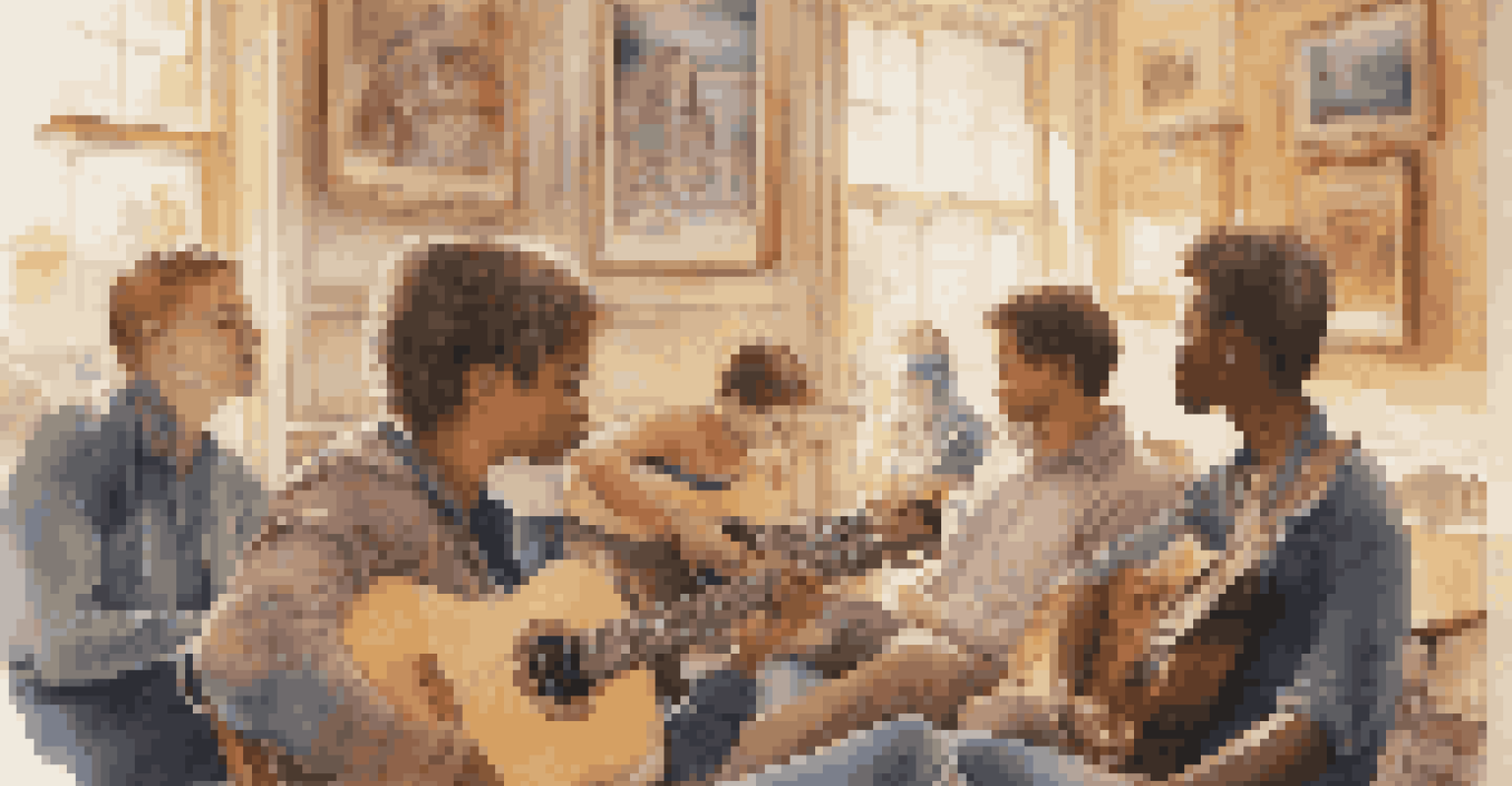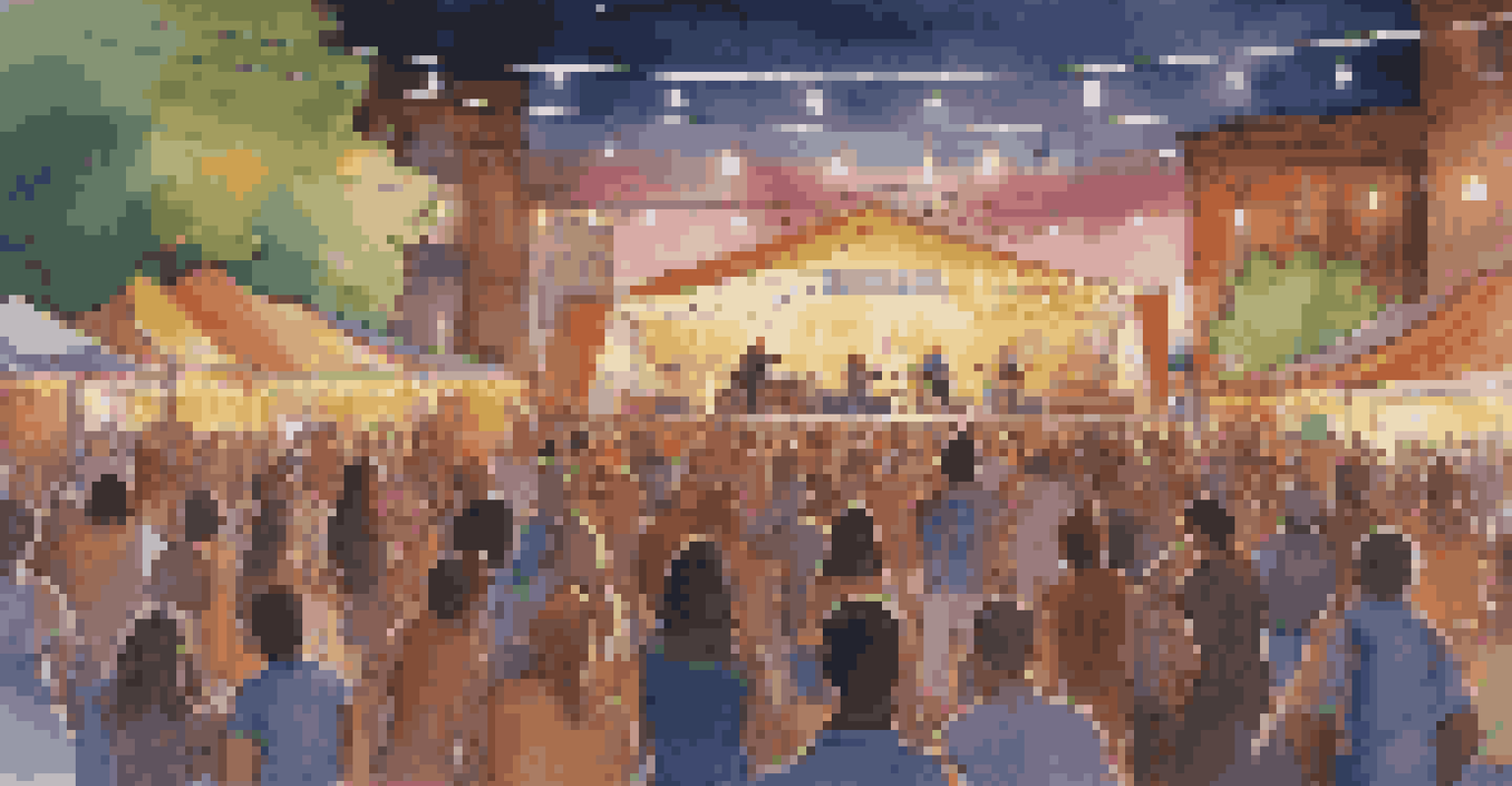How Neighborhood Music Groups Promote Social Responsibility

The Role of Music in Building Community Connections
Music has an incredible ability to bring people together. In neighborhoods, local music groups serve as a hub for community interaction, where individuals from different backgrounds unite over a shared love of melodies and rhythms. This sense of belonging fosters friendships and networks that can lead to stronger community ties.
Music can change the world because it can change people.
When people engage in musical activities, they often share personal stories and experiences. This exchange creates empathy and understanding, which are essential components of social responsibility. As neighbors connect through music, they begin to see each other not just as acquaintances but as integral parts of a larger community.
Moreover, these connections often extend beyond the music itself. Participants may collaborate on community projects, volunteer together, or support local causes, all stemming from the relationships built within these musical gatherings.
Creating Safe Spaces for Expression and Inclusion
Neighborhood music groups provide an inclusive environment where all voices are heard. This sense of safety allows individuals to express themselves freely, whether through singing, playing instruments, or songwriting. Such spaces are crucial for fostering creativity and encouraging people to step outside their comfort zones.

Inclusion in music groups means embracing diversity, allowing people of varying ages, cultures, and skill levels to participate. This diversity enriches the musical experience and reflects the community's makeup, helping individuals to feel valued and respected. When everyone feels included, it strengthens the fabric of social responsibility.
Music Unites Communities
Local music groups foster connections among diverse individuals, creating a sense of belonging and encouraging social responsibility.
Additionally, these groups often tackle social issues through their music. By addressing topics such as inequality or environmental concerns in their songs, they raise awareness and inspire action within the community.
Fostering Youth Engagement through Music Programs
Youth engagement is a critical aspect of promoting social responsibility, and neighborhood music groups are pivotal in this arena. By offering music programs, these groups provide young people with opportunities to learn new skills, develop confidence, and connect with peers. Such involvement encourages them to take an active role in their community.
Where words fail, music speaks.
When young people participate in music groups, they learn the importance of teamwork and collaboration. Whether they are playing in a band or participating in a choir, these experiences teach them how to work towards a common goal, a lesson that extends beyond music and into civic engagement.
Moreover, mentorship opportunities often arise within these groups, where older members guide younger ones. This relationship fosters a sense of responsibility among youth, as they learn to support and uplift their peers.
Encouraging Local Economic Support through Music Events
Neighborhood music groups often organize events that not only entertain but also support the local economy. By hosting concerts, festivals, or open mic nights, they draw community members together while encouraging them to patronize local businesses. This symbiotic relationship benefits everyone involved.
Local businesses, in turn, can sponsor these events, creating a cycle of support that strengthens the community. When residents see their favorite shops and eateries getting involved, it fosters a sense of pride and responsibility toward supporting those businesses in return.
Inclusive Spaces for Expression
Neighborhood music groups provide safe environments for creativity, allowing individuals to express themselves and embrace diversity.
Additionally, these events often serve as a platform for local artists to showcase their talents. By promoting homegrown talent, music groups contribute to a vibrant cultural scene that encourages creativity and innovation.
Collaborating with Local Organizations for Greater Impact
Local music groups often partner with various organizations to amplify their impact. By collaborating with schools, charities, and community centers, they can reach a wider audience and address specific social issues more effectively. This partnership approach creates a stronger network of support within the community.
These collaborations can lead to workshops, fundraisers, and educational programs that not only promote music but also instill values of social responsibility. For instance, a music group might team up with a local charity to raise funds for a community project, demonstrating how art can drive social change.
Through these efforts, music groups help cultivate a culture of giving and responsibility. Community members witness firsthand the power of collective action and the positive change that can result when everyone comes together.
Promoting Mental Health and Wellbeing through Music
Participating in music can have profound effects on mental health and overall wellbeing. Neighborhood music groups provide a creative outlet for individuals to express their emotions, relieving stress and promoting a sense of joy. This emotional release is essential for maintaining a healthy mindset.
Moreover, the social connections formed in these groups can combat feelings of isolation. When individuals feel supported by their musical peers, they are more likely to seek help and share their struggles, fostering a culture of openness and understanding.
Music as Advocacy for Change
Through performances and songwriting, music groups raise awareness on social issues, promoting community engagement and collective action.
Ultimately, prioritizing mental health within community music groups enhances the overall quality of life for its members. By addressing these issues collectively, they cultivate a sense of responsibility toward one another’s wellbeing.
Using Music as a Tool for Advocacy and Change
Music has always been a powerful tool for advocacy and social change. Neighborhood music groups harness this power by using their platform to raise awareness about pressing issues. Through songwriting and performances, they can address topics such as climate change, social justice, and mental health.
By incorporating these themes into their music, they not only entertain but also educate their audiences. This approach encourages community members to reflect on important issues and consider their roles in creating positive change.

Additionally, music groups can organize campaigns or events that align with their advocacy efforts, further amplifying their impact. By rallying the community around shared causes, they cultivate a sense of social responsibility and collective action.